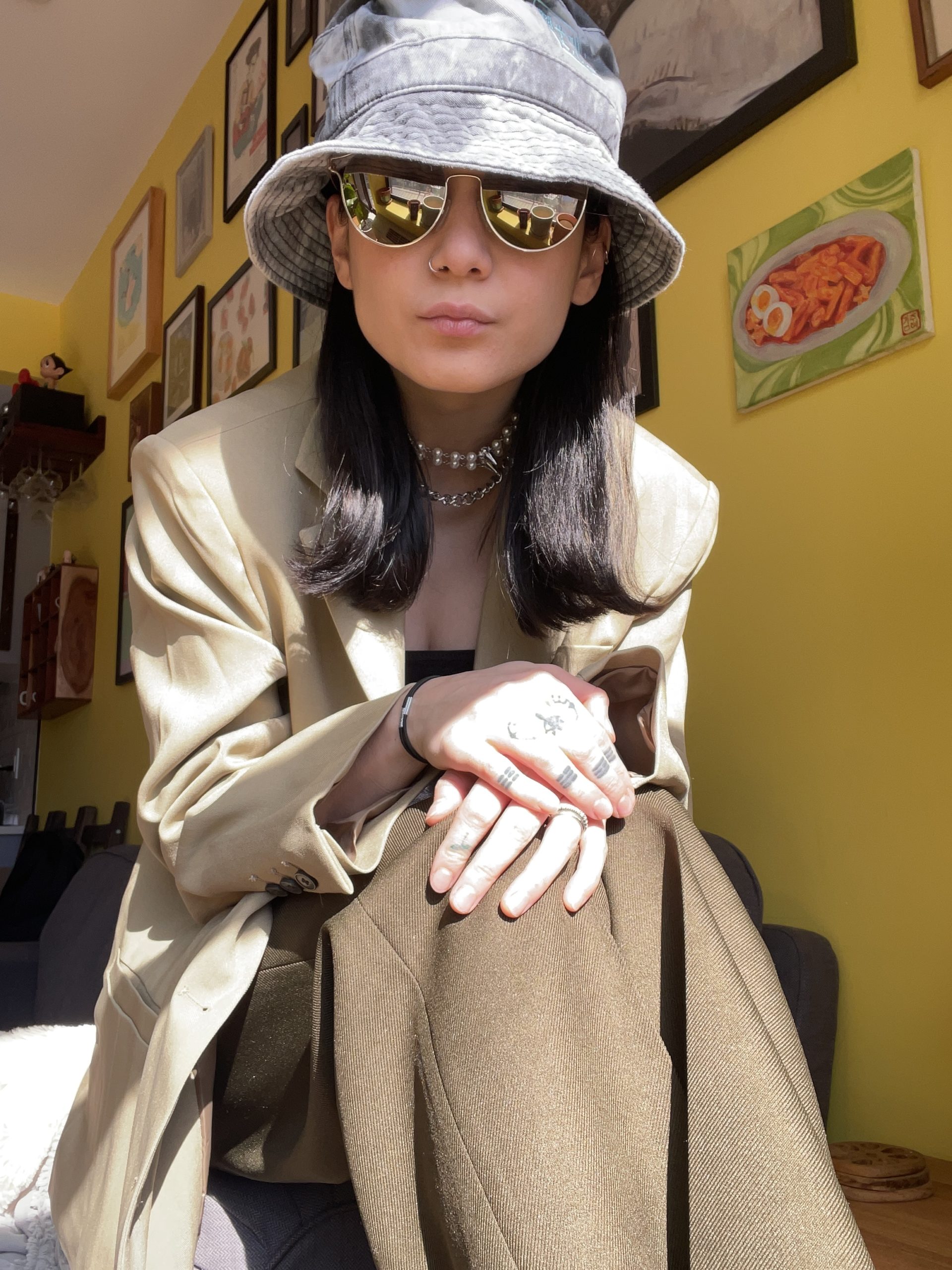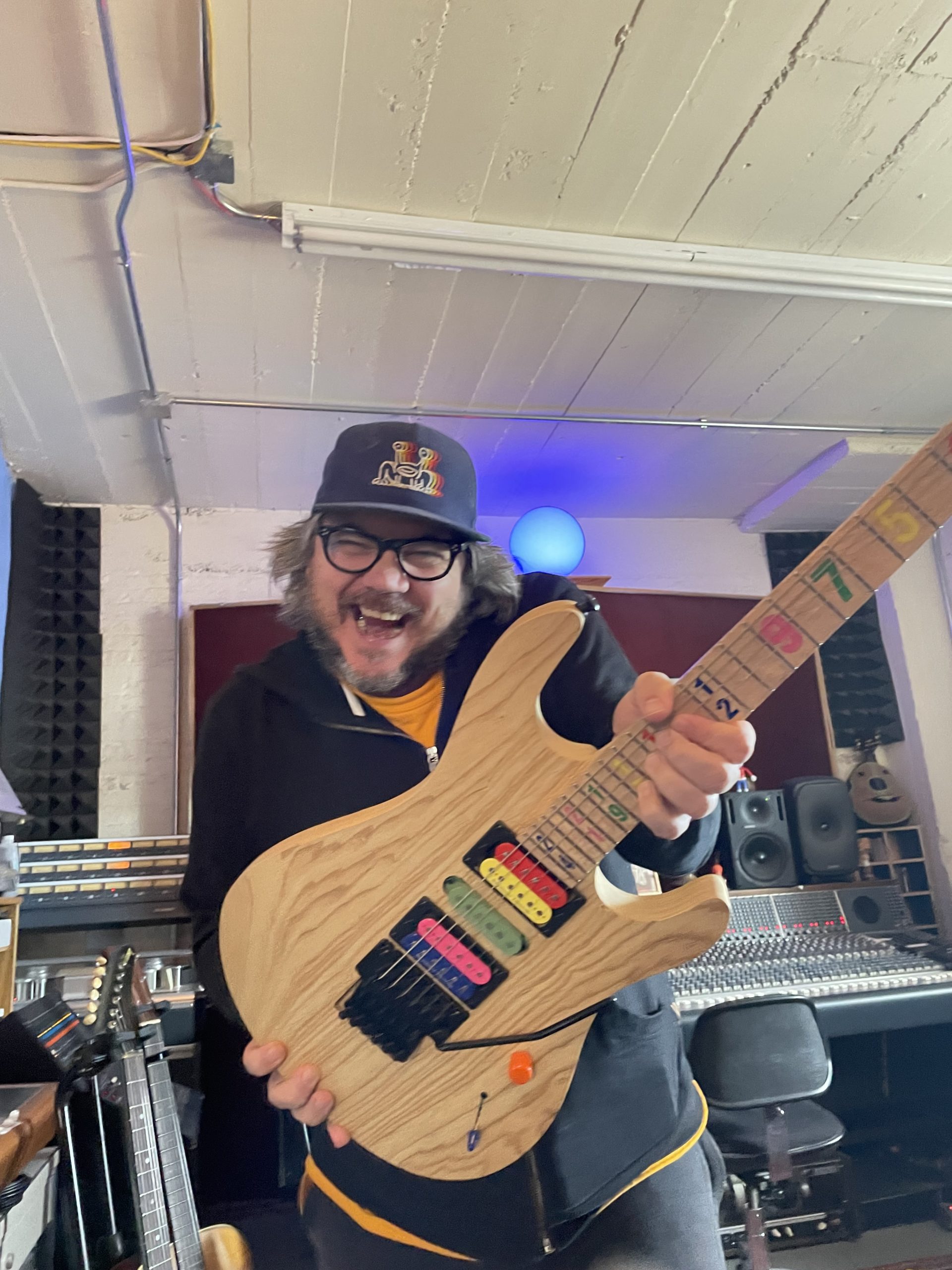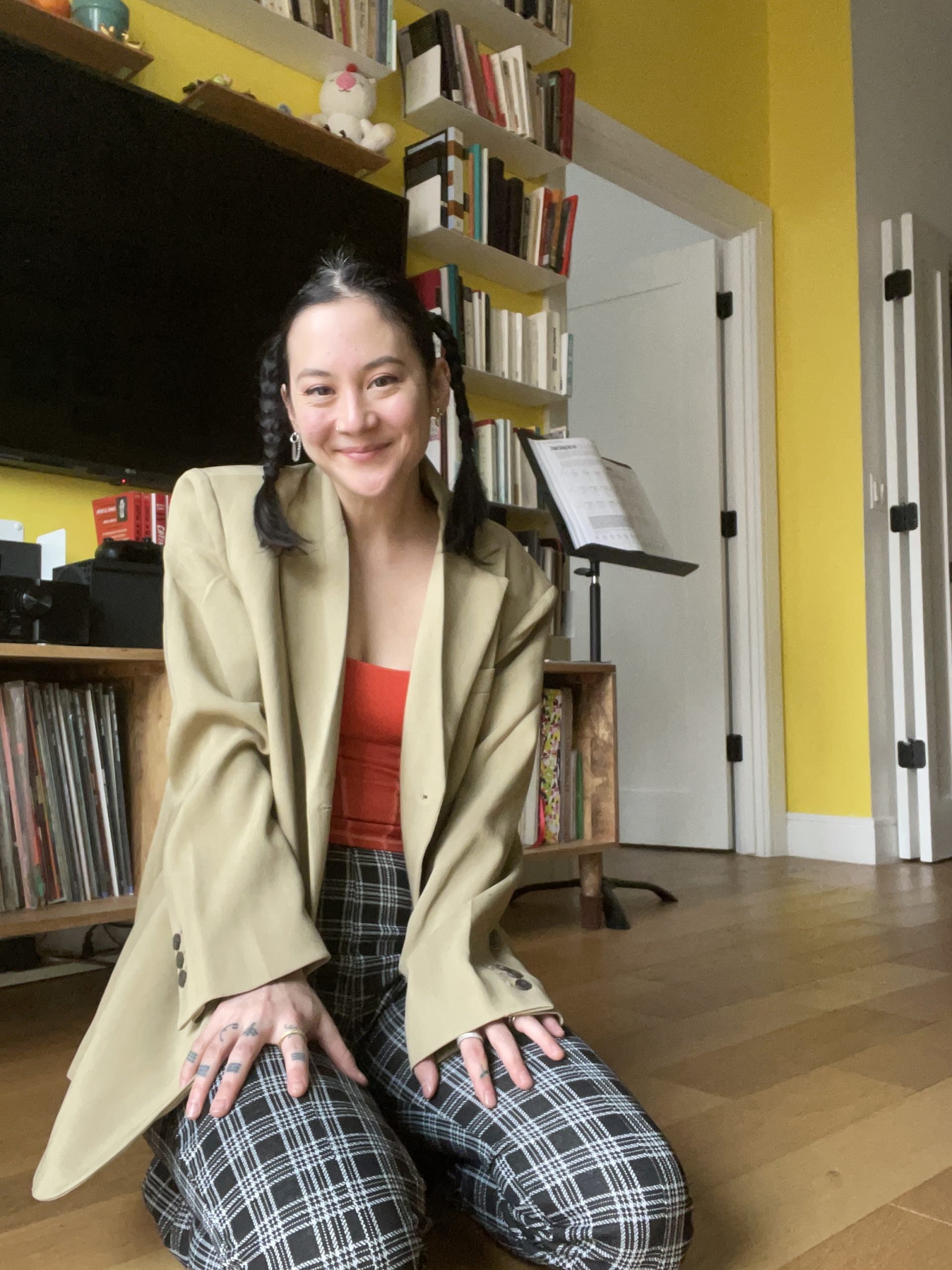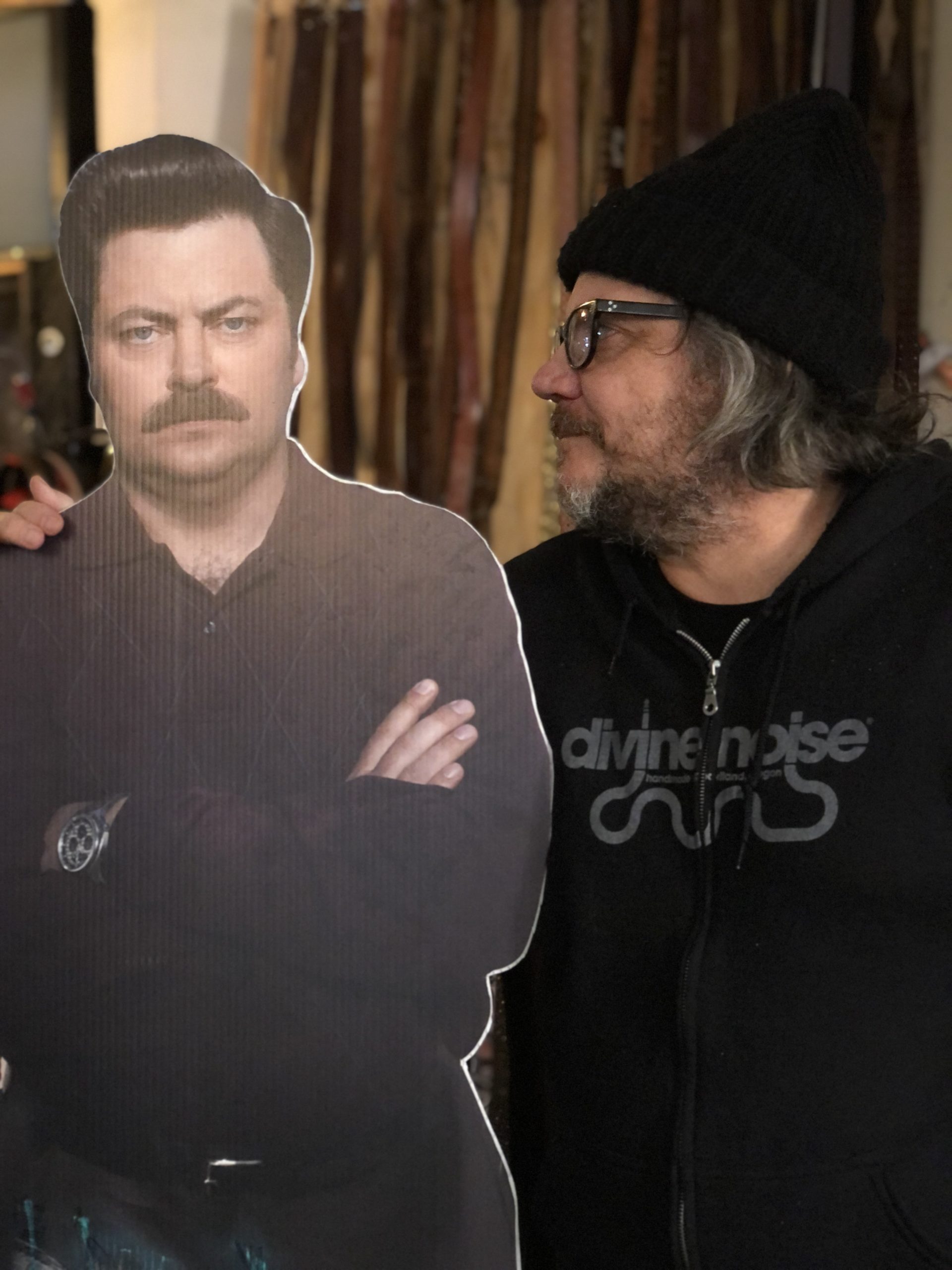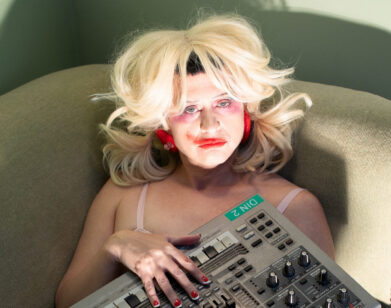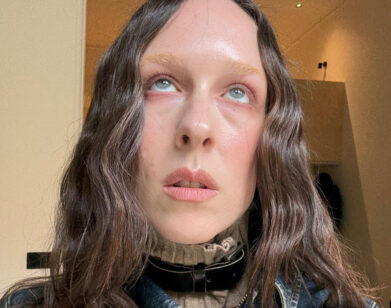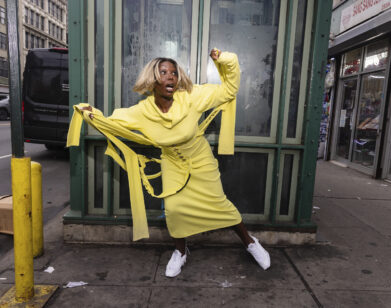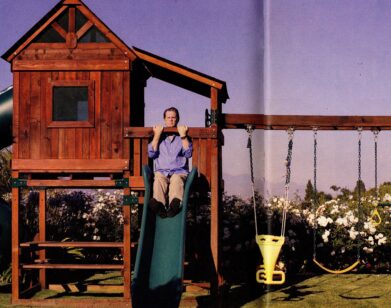Music!
Michelle Zauner Calls Jeff Tweedy For Some Pre-Grammys Advice
For Michelle Zauner, life post-breakthrough hasn’t been all sunshine and rainbows. “I’ve been feeling a little lost,” the Seoul-born artist said on a recent Zoom call. “I feel like I’ve hit my peak and it’s all downhill from here.“ At 33, Zauner— the frontwoman of the experimental pop outfit Japanese Breakfast, and author of last year’s celebrated memoir Crying in H-Mart—has garnered mainstream acclaim seemingly overnight. This year, Japanese Breakfast was nominated for Best New Artist at the 2022 Grammys, and her latest record, Jubilee, is in the running for Best Alternative Album. Before the award ceremony takes place this Sunday, Zauner called up her friend and mentor Jeff Tweedy, the Wilco frontman and a multi-Grammy winner himself, for some words of wisdom about navigating fame.—SOPHIE LEE
———
JEFF TWEEDY: Hi, Michelle. How are you?
MICHELLE ZAUNER: Hi, Jeff! I’m great. Are you still in Austin?
TWEEDY: Just left.
ZAUNER: My manager saw the show yesterday, and he said it was incredible. We’re both huge fans. His screen name is literally “Muzzle of Bees.”
TWEEDY: Oh yeah? That’s crazy. It was a fun show. The audience kept making requests for stories. So, I told a few stories. I just aim to please, Michelle.
ZAUNER: Are you on a solo tour right now?
TWEEDY: Sort of. We just played a bunch of shows in LA. When I play my solo material, I do it with my kids—Spencer [Tweedy] on drums, Sammy [Tweedy] on background vocals—and some friends. So, it’s not really a tour. How have you been?
ZAUNER: I’ve been feeling a little lost. I feel like I’ve hit my peak and it’s all downhill from here. I’m wondering if you’ve had that feeling artistically in your life?
TWEEDY: Yeah. The bad thing is that I had that feeling in like 1991.
ZAUNER: Wait, what record was that, when you thought you hit your peak?
TWEEDY: When I was growing up, it was never my ambition to have any of the things that I have now. It was to be in an indie rock, punk rock band, or whatever. That’s all I could visualize—getting in a van and making records and traveling around like the bands that I idolized. And that happened right away. So, every step since then—maybe you can relate to this, I don’t know—has been an effort to keep up with the circumstances I’m in. I’m trying to rise to the occasion of something that I really never imagined, but I have to visualize now, in order to put on a good show and to fill up a stage.
ZAUNER: It’s interesting that you and your wife [Sue Tweedy] have been married for so long. So much of being a rock musician is centered around agony and longing. I’m nearing my mid 30s, and I’ve been happily married for eight years. I don’t know what there is to write about at this point. How do you keep finding that intense feeling?
TWEEDY: Oh, I don’t know. I mean, you obviously do know how to find it. You’ve been married for eight years, and you’ve written about heartache and things that I assume you aren’t feeling anymore. Am I making an assumption there?
ZAUNER: No. It’s totally true.
TWEEDY: Those feelings never really drift that far away, because you see other people going through them. That’s something you have to work on—relating to people, because it can’t all be about you. Also, being happily married doesn’t mean that you’re… happy. [Both laugh].
ZAUNER: It’s true.
TWEEDY: I think that’s the biggest lesson most people learn is that it’s almost impossible to feel one thing at a time. We have layers of emotions and we don’t really get to pick them. I guess we get to pick the ones that we focus on, but that usually doesn’t work out very well. It’s a huge problem, the way the world works, that people feel they have a right to pick the emotions that they want, as opposed to accepting and coping with the emotions that they’re feeling.
ZAUNER: It’s funny, your location that comes up [on Zoom] is a map of University of Chicago. You seem to be next to a Costco. I’m imagining this entire conversation happening outside of a Costco.
TWEEDY: Well, that’s appropriate. I’m not above a Costco.
ZAUNER: I might have asked you this before—do you play the solo on “At Least That’s What You Said”?
TWEEDY: Yes, I do play the solo on that.
ZAUNER: So, I have a two-part question. One is, what do you think goes into a great guitar solo? The second question is, how do you decide if Nels [Cline] takes a solo or you take a solo?
TWEEDY: Well, that solo was on the first record we made after Yankee [Hotel Foxtrot]. I was the only lead guitar player in the band then. At that point, I was able to say things with the guitar that I wasn’t able to say in words. I think that’s what makes a good guitar solo—it’s adding to the emotion of the song and the lyrics, but it’s the part that you can’t say. I think great solos should be memorable as a motif. I love playing guitar, but it would be too much for me to sing and play rhythm guitar and switch. Nels understood country music, but he was also really firmly rooted in an experimental avant-garde jazz culture, and understood the idea of making something sound exciting, fresh, but also sort of broken. The sense I get from your records is, there’s a lot of well-crafted arrangements, and everything has been considered—but they still come out sounding spontaneous. They just kind of happen, which is a real trick. Does that sound accurate to you?
ZAUNER: No, we’re just trying to rip you off, Jeff. [Both laugh]
TWEEDY: That’s not true. That’s not true at all.
ZAUNER: The last song on Jubilee is called “Posing for Cars,” and I was really inspired by the guitar solo on “At Least That’s What You Said.” I thought it was really courageous, as a songwriter, to take charge of that kind of narrative. That song really moved me. The solo felt like it told another part of the story, specifically about what two people can’t say to one another in a room.
TWEEDY: There is something so visceral about how you can express yourself with an electric guitar. I think you’re right, you can say things with a guitar that you couldn’t otherwise. Back to what I said earlier about adapting to the circumstances that you find yourself in—have you had to do a lot of that in the last few years? As somebody who cares about you and your music, that’s a lot of pressure to keep up with. But is it something you enjoy? Finding yourself on a bigger stage, getting a light show together, things like that?
ZAUNER: I mean, ambition just makes you want to rise to the occasion. We’ve gone far beyond what, even in my wildest teenage fantasies, I imagined the life of a rock star would be. I never thought I would have a lighting designer, that’s for sure. I never thought that we would be on a bus, or that we would be playing these venues. But once you’re there, it feels like you’ve been thrown into the deep end, and you might as well try to swim.
TWEEDY: Right.
ZAUNER: I’m just waiting for the descent, you know? But until then, it just feels more natural to keep up than to slow it down.
TWEEDY: That’s exactly how I felt for a long time. I understand the impulse to wait for the descent and prepare yourself for it to not always be like this. But at the same time, you get a lot of affirmation that the way that you’ve gone about things is the real reason that you’re where you are. If you continue to focus on putting honest and beautiful work into the world, then everything’s going to end up where it’s supposed to. For me, that always created a feeling of power to say no to record companies. You know what I mean?
ZAUNER: I think that power is one of the really beautiful things about growing a project. Now, when I struggle to play something, I can say, “Well, I can’t play this very well, but I’ve been nominated for two Grammys.” [Both laugh] So, I do use the confidence to comfort myself a bit.
TWEEDY: There’s a famous quote from a master cellist— somebody asked him in his 70s why he still practiced three hours a day. He said, “Because I’m starting to notice some improvement.” [Both laugh] I really related to that—not that I’m a master of anything, but I get a lot of satisfaction out of feeling like I’m getting better at doing this. I’m always reminding myself like, “10 years ago, this technical thing would’ve been much more difficult, this audience would’ve really freaked me out, I would’ve had a tough time with this guy yelling at me.” That’s one of the most gratifying parts of being around for a long time—getting to be able to do this for a long time. Have your goals changed now that you’ve met them? My goals have always been centered around just getting to do this for another day. That sounds like a cop out, but it’s a really important goal. The decisions are totally different if longevity is your goal.
ZAUNER: Yeah. That’s something that a lot of people associate with your band—the longevity of your career. From album to album, it feels like you guys are always pushing to show a different side of yourselves.
TWEEDY: I always assume that’s what everybody wants, but I don’t know if everybody does. Is that what you want?
ZAUNER: It feels like if we lost it all, I would still be happy touring in a van, playing small shows. And I think it’s good to focus on that, instead of thinking, “We have to keep getting bigger.” I just always want to be writing music that’s exciting. I wonder, as someone with such a large catalog—is there a record or a song that sticks out as your favorite after all this time?
TWEEDY: Wilco has never turned its back on any of the material. We play things off of every record. So, all of them have this weird feeling of being both current and not current. I have a healthy relationship with all the records, I don’t really feel like I could have done better. That being said, with every new record, I always feel like I’m going to finally get it right this time. [Both laugh] When you listen to Jubilee, do you think, “I know I can do better than that”?
ZAUNER: Yeah, I hope so. I was supposed to start writing new songs this week, and I’m weirdly afraid, because I’m super proud of this album, and I’ve reached something that I didn’t know I was capable of. Now I feel like I have to go back and study again, become a better guitar player, and really figure out what I want to say. But I guess that’s pretty natural. There are certain songs in my catalog that are special to me, because I found something in myself that I didn’t know I had.
TWEEDY: Right. Once you get writing, you’re going to find something that you weren’t picturing, you know what I mean?
ZAUNER: Yeah.
TWEEDY: You just start getting excited by what you’ve discovered, as opposed to thinking, ” I hope I write something that everybody thinks is smart.”
ZAUNER: It’s really funny what Dolly Parton says about her songs, about how they’re all her children and she loves them equally, but some are more successful than others. “I Will Always Love You” became the president, and “Jolene” is CEO of a Fortune 500 company.
TWEEDY: I totally get that. It’s hard not to have some affection for even the, I don’t know—
ZAUNER: Do you have an unloved child in your catalog?
TWEEDY: Oh, yeah. There are plenty of songs that get neglected, but when it comes down to it, I do maintain affection for almost all of them. It’s similar to family, I guess. I can say a song is stupid, but if somebody else tells me it’s stupid, I’m going to defend it.
ZAUNER: Totally. [Both laugh]
TWEEDY: You’re coming to our festival in a couple of months, right? You’re doing Solid Sound?
ZAUNER: Yes. I can’t wait. And thank you for my dream night at Austin City Limits [in January]. Getting to sing with you… I’m so excited to hang out and finally play a proper show.
TWEEDY: We were thrilled to share the stage with you at ACL. That was amazing. Here’s the million dollar question: have you already started another book?
ZAUNER: I haven’t. I’m married to the idea of moving to Korea and learning the language, and kind of documenting the process of that. I’ve been reading this incredible book by Jhumpa Lahiri called In Other Words, which is about her time in Italy, learning the Italian language, learning to write in Italian, and her relationship to that. That’s the idea that I unfortunately can’t get out of my head, but that requires, like, a year long commitment, and that’s a scary thing right now. So, sometime in the next couple of years that will be my path. I heard that you’re working on another book?
TWEEDY: I’ve played around with a couple of ideas, but I think I’m going to finish a book this summer. Nothing as ambitious as yours.
ZAUNER: What’s it about?
TWEEDY: Well, the initial idea is working off a title I came up with, Winning at Yoga—
ZAUNER: [Laughs] Do you do yoga?
TWEEDY: —A Spiritual Guide for the Competitive Soul.
ZAUNER: Wow. I love that.
TWEEDY: But now I’m thinking I want to write a book called Don’t Know: The Great Book of Not Knowing.
ZAUNER: [Laughs]
TWEEDY: Because I think it’s really missing in this world, is people just being able to tolerate not knowing.
ZAUNER: I can just see the cover as you just shrugging and looking upwards.
TWEEDY: Yeah. “Don’t know.” [both laugh]
ZAUNER: I don’t want to take too much of your time, I know you’re on tour, but it was really wonderful to get to speak with you.
TWEEDY: Well, I have a million more questions, but hopefully we’ll have plenty of time to catch up soon. Michelle, congratulations on all of the success. It’s really, really wonderful to see, and you 100 percent deserve it all, and I hope you know that.
ZAUNER: Oh, it means the world coming from you, Jeff. Thank you so much.
TWEEDY: I mean it.

